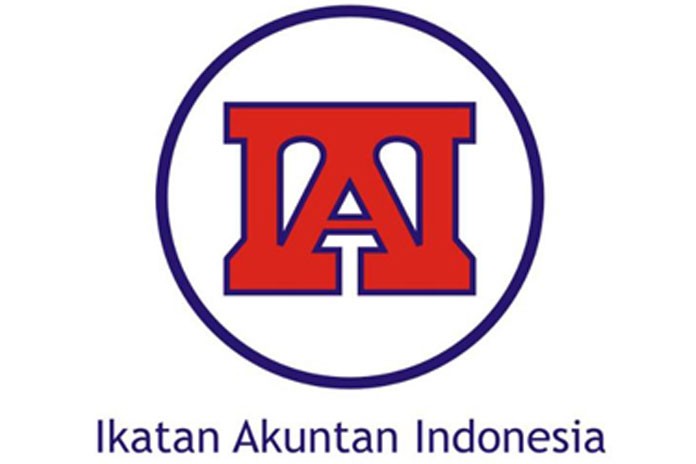The Influence of Corporate Social Responsibility Towards Employees on Performance: A Comparison of Companies on The Indonesian Stock Exchange
Abstract
Ullmann’s (1985) Stakeholder theory states that the implementation of Corporate Social Responsibility (CSR) has an influence on the achievement of a company’s economic performance. This research examines the influence of CSR on employees (CSR-E) including the salary and welfare, education, work safety and gender equality on sales growth and human resource efficiency. This research compares three types of perusahaanes, namely natural resource, manufacture, and service perusahaanes listed on the Indonesian Stock Exchange. It is hoped that the results of this research can provide a solution regarding the importance of implementing CSR-E and its influence on companies’ business performance, so that companies are much more motivated to implement CSR-E. This research uses descriptive and quantitative data analysis techniques where SPSS application was used to analyze 297 annual and financial reports of companies listed on the Indonesian Stock Exchange from 2015, 2016 and 2017. The research found that CSR-E for work safety had an influence on human resource efficiency in manufacturing companies and CSR-E salary and gender equality had a significant influence on sales growth and natural resource efficiency in service-based companies. Implementing CSR-E is an important requirement for manufacturing and service companies. It is because manufacturing and service perusahaanes are companies with a high risk of pollution and work accident rates. The controlled variable for the number of workers has an influence on sales growth and human resource efficiency. Workers are the substantial party for the company because they are directly involved in the daily basis company’s operational activities in an effort to achieve the company’s financial performance.
Keywords
Full Text:
PDFReferences
Al Tuwaijri, S. A., Christensen, T. E., & Hughes II, K. E. (2004). The relations among environmental disclousure, environmental performance, and economicperformance: a simultaneous equiption approach. Accounting,Organization and Society, 29, 447–441.
Alikaj, A. (2016). The Combined Effect of Firm External and Internal Factors on Corporate Social Responsibility and Firm Performance. International Management Review , 12(2), 20–28.
Aras, G., Aybars, A., & Kutlu, O. (2011). The interaction between corporate social responsibility and value added intellectual capital: empirical evidence from Turkey. Social Responsibility Journal, 7(4), 662–637.
Arsoy, A. P., Arabaci, O., & Ciftcioglu, A. (2012). Corporate social responsibility and financial performance relantionship: the case of Turkey. The Journal of Accounting and Finance, 159–176.
Blajer-Gołębiewska, A. (2014). Corporate reputation and economic performance: the evidence from Poland. Economics and Sociology, 7(3), 194–207.
Cavazotte, F., & Chang, N. C. (2016). Internal corporate social responsibility and performance: a study of publicly traded companies. BAR Rio de Janeiro, 13(4), 1–19.
Chaisena, Y., & Ussahawanitchakit, P. (2016). Corporate social responsibility and firm sustainability: an empirical investigation of ISO 14000 business in Thailand. The Business and Management Review, 7(5), 241–249.
Chiang, C.-C. S. (2010). How corporate social responsibility influences employee job satisfaction in the hotel industry. Theses University of Nevada.
Cooper, D. R., & Schindler, P. S. (2001). Business research method (7th ed.). USA: McGraw-Hill.
Cooper, E. W., & Uzun, H. (2015). Corporate social responsibility and the cost of debt. Journal of Accounting and Finance, 15(8), 11–29.
Costa, J., & Fonseca, J. P. (2022). The Impact of Corporate Social Responsibility and Innovative Strategies on Financial Performance. Risks, 10(5). https://doi.org/10.3390/risks10050103
Donaldson, T., & Preston, L. E. (1995). The stakeholder theory of the corporation: concepts, evidence, and implications. Academy of Management Review, 20(1), 65–91.
Erawan, P., Professor, S., Ausloos, M., Fettry, S., & Barlian, I. (n.d.). The Analysis Of Linkage Between Corporate Social Responsibility And Financial Performance: Evidence From Indonesian Banks. South East Asia Journal of Contemporary Business, Economics and Law, 21.
Fadjrih Ayik, N. (n.d.). The Effect of Ownership Structure and Corporate Social Responsibility on Financial Performance and Firm Value in Mining Sector Companies in Indonesian. In International Journal of Economics Development Research (Vol. 2, Issue 2).
Firth, M., Fung, P. M. Y., & Rui, O. M. (2006). Firm performance, governance structure, and top management turnover in a transitional economy. Journal of Management Studies, 43, 1289–1330.
Freeman, R. E., Wicks, A. C., & Parmar, B. (2004). Stakeholder theory and“the corporate objective revisited.” Organization Science, 15(3), 364–369.
Gaudencio, P., Coelho, A., & Ribeiro, N. (2014). Organizational CSR practices: employees’ perceptions and impact on individual performance. International Journal of Innovation Management, 118(4), 1–26.
Ghozali, I. (2017). Model Persamaan Struktural Konsep dan Aplikasi dengan Program AMOS 24 Update Bayesian SEM (7th ed.). Universitas Diponegoro.
Hair, J. F., Black, W. C., Babin, B. J., & Anderson, R. E. (2010). Multivariate Data Analysis.
Han, J.-J., Kim, H. J., & Yu, J. (2016). Empirical study on relantionship between corporate social responsibility and financial performance in Korea. Asian Journal of Suistainability and Social Respobsibility, 1–16.
Hendrastomo, G. (2010). Menakar kesejahteraan buruh: memperjuangkan kesejahteraan buruh diantara kepentingan negara dan korporasi. Jurnal Informasi, 16(2), 1–16.
Hernandez, M. I. S. (2016). The effect of internal side of social responsibility on firm competitive success in the business service industry. Suistainability, 8(179), 1–15.
Herri, H. (2011). Firm`s performance and top management characteristics in Indonesia. International Business and Economics Research Journal, 10(8), 15–22.
Hirigoyen, G., & Rehm, T. P. (2015). Relationships between corporate social responsibility and financial performance: wahat is the causality? Journal of Business & Management, 4(1), 18–43.
Hirsch, B. T. (2010). Unions, Dynamism, and Economic Performance. Institute for the Study of Labor IZA Discussion Paper .
International Labour Organization. (2015). Tren Tenaga Kerja dan Sosial di Indonesia 2014-2015. International Labour Organization.
International Labour Organization. (2017). Laporan Ketenagakerjaan Indonesia 2017. International Labour Organization.
Kusumawati, R., Asyilah, N. H., & Bukhori, I. (2022). Corporate Social Responsibility’s (CSR) Impact on Financial Performance: Moderating Effects of Earnings Management and Leverage. Jurnal Manajemen Bisnis, 13(2), 223–234. https://doi.org/10.18196/mb.v13i2.12888
Lin, C.-S., Chang, R.-Y., & Dang, V. Thac. (2015). An integrated model to explain how corporate social responsibility affects corporate performance . Sustainability, 7, 8292-8390.
Liu, T. K. (2020). The impact of corporate social responsibility on performance in the financial industry. In Asian Economic and Financial Review (Vol. 10, Issue 9, pp. 1037–1050). Asian Economic and Social Society. https://doi.org/10.18488/journal.aefr.2020.109.1037.1050
Long, C. H. (2015). The impact of market orientation and corporate social responsibility on firm performance: evidence from Vietnam. Academy of Marketing Studies Journal, 19(1), 265–277.
Malik, M. (2015). Value-Enhancing Capabilities of CSR: a breaf revieu of contemporary literature. J Bus Ethic, 127, 419–438.
Maqbool, S., & Zameer, M. N. (2018). Corporate social responsibility and financial performance: An empirical analysis of Indian banks. Future Business Journal, 4(1), 84–93. https://doi.org/10.1016/j.fbj.2017.12.002
Maydeu-Olivares, A., & Lado, N. (2003). Market orientation and business economic performance a mediated model. International Journal of Service Industry Management, 14(3), 284–309.
Mohammad, A. A. S., Altarifi, S. M. M., & Alafi, K. K. (2014). The impact of corporate social responsibility toward employees on company performance: a Jordanian study. Interdiciplinary Journal of Contemporary Research in Business, 6(5), 225–270.
Morogo, V. J. (2016). Effect of international corporate social responsibility on firm financial performance: evidence from Kenya Commercial bank. American Based Research Journal, 5(11), 1–9.
Mory, L., irtz, B. W., & Gottel, V. (2015). Corporate social responsibility stretegies and their impact on employees commitment. Journal of Strategy and Management, 9(2), 172–201.
Nakamura, E. (2015). The bidirectional CSR investment – economic performance relationship. Journal of Global Responsibility, 6(1), 129–144.
Nejati, M., & Ghasemi, S. (2012). Corporate social responsibility in Iran from the perspective of employees. Social Responsibility Journal, 8(4), 578–588.
Nguyen, C. T., Nguyen, L. T., & Nguyen, N. Q. (2022). Corporate social responsibility and financial performance: The case in Vietnam. Cogent Economics and Finance, 10(1). https://doi.org/10.1080/23322039.2022.2075600
Norman Mohd Saleh, & Mara Ridhuan Che Abdul Rahman. (2008). Ownership structure and intellectual capital performance in Malaysia.
Potluri, M. R., Batima, Y., & Madiyar, K. (2010). Corporate social responsibility: a study of Kazakhstan corporate sector. Social Responsibility Journal, 6(1), 33–44.
Pulic, A. (1998). Measuring the performance of intellectual potential in knowledge economy.
Roberts, R. W. (1992). Determinants of corporate social responsibility disclosure: an application of stakeholders theory. Accounting Organizations and Society, 17(6), 596-612.
Saphira A.C. Rekker, Benson, K. L., & Robert W. Faff. (2014). Corporate social responsibility and CEO compensation revisited: Do disaggregation, market stress, gender matter? . Journal of Economics and Business, 72, 84–103.
Tabachnik, B. G., & Fidell, L. S. (2011). Using Multivariate Statistics (4th ed.). Needham Heights: Allyb & Bacon.
Tamm, K., Eamets, R., & Motsmees, P. (2010). Relationship between corporate social responsibility and job satisfication: the case of Baltic countries. University of Tartu.
Zieantara, P. (2015). Corporate social responsibility and employee attitudes: evidence from a study of Polish hotel employee. Journal of Sustainable Tourism., 23, 859–880.
DOI: http://dx.doi.org/10.35448/jrat.v16i2.22389
Refbacks
- There are currently no refbacks.
pISSN 1979-682X eISSN 2528-7443
Jurnal Riset Akuntasi Terpadu (JRAT) is licensed under a Creative Commons Attribution 4.0 International License







